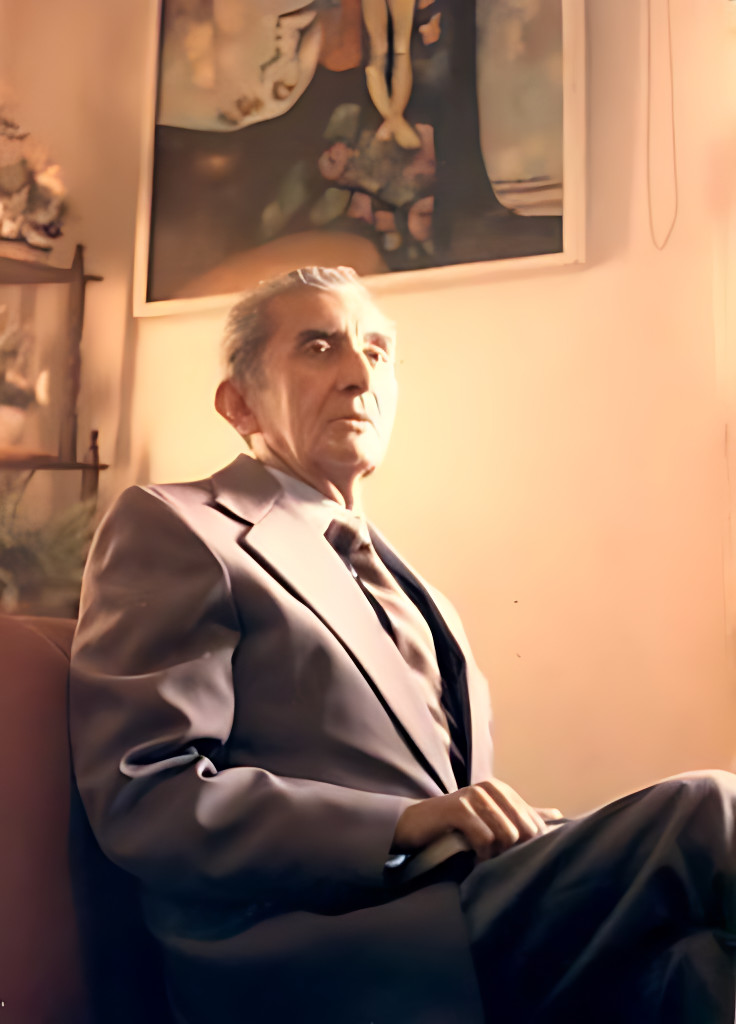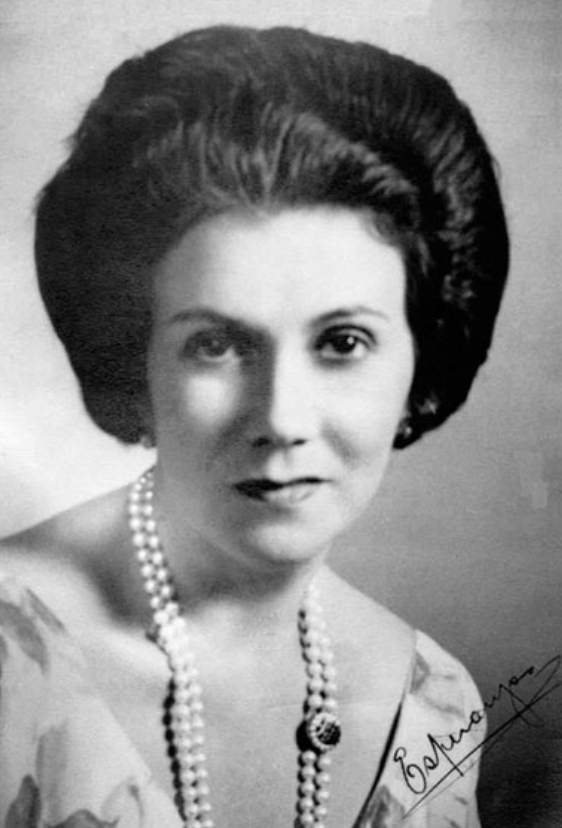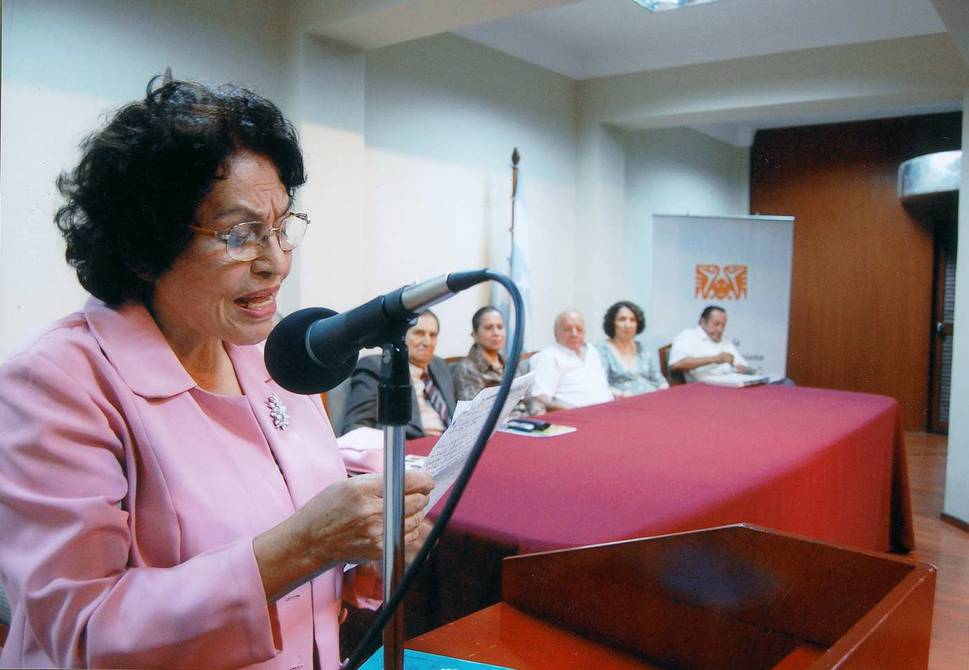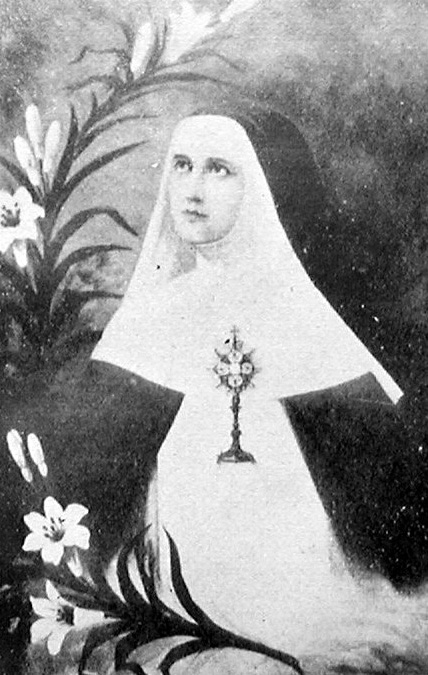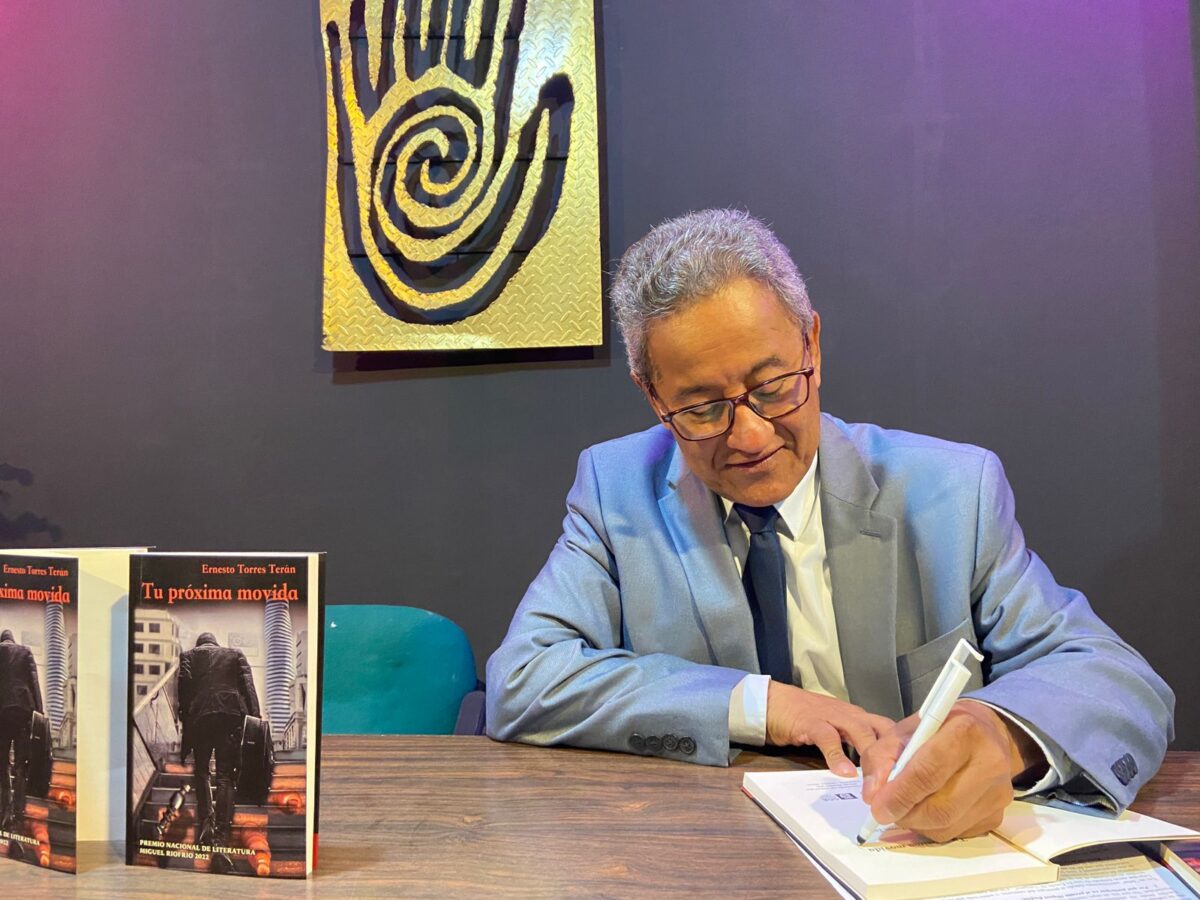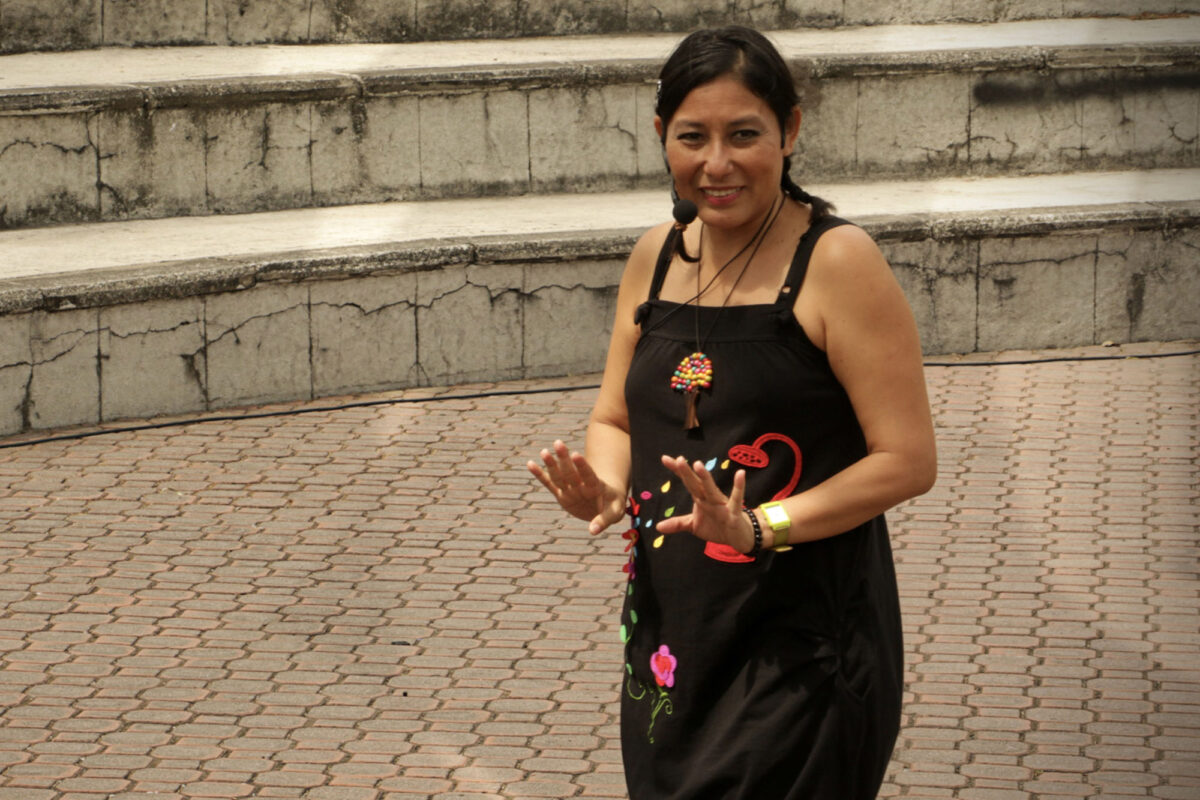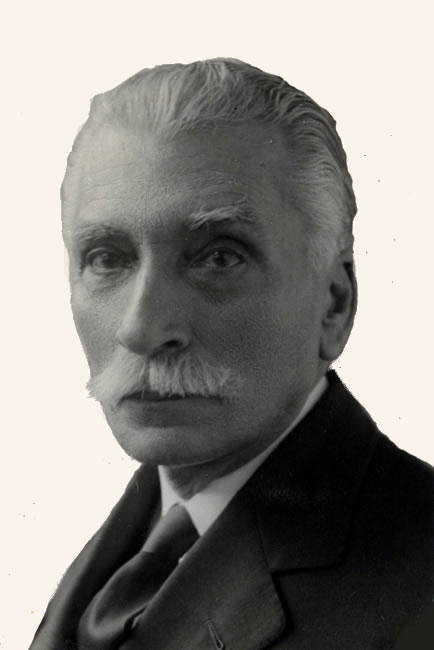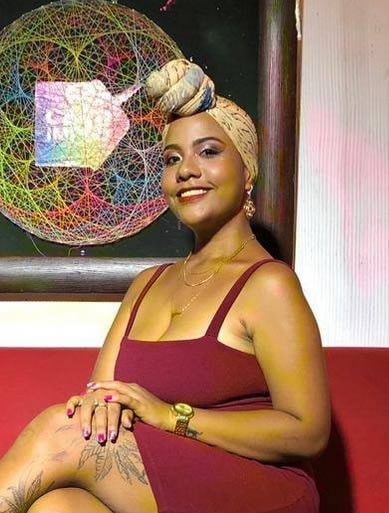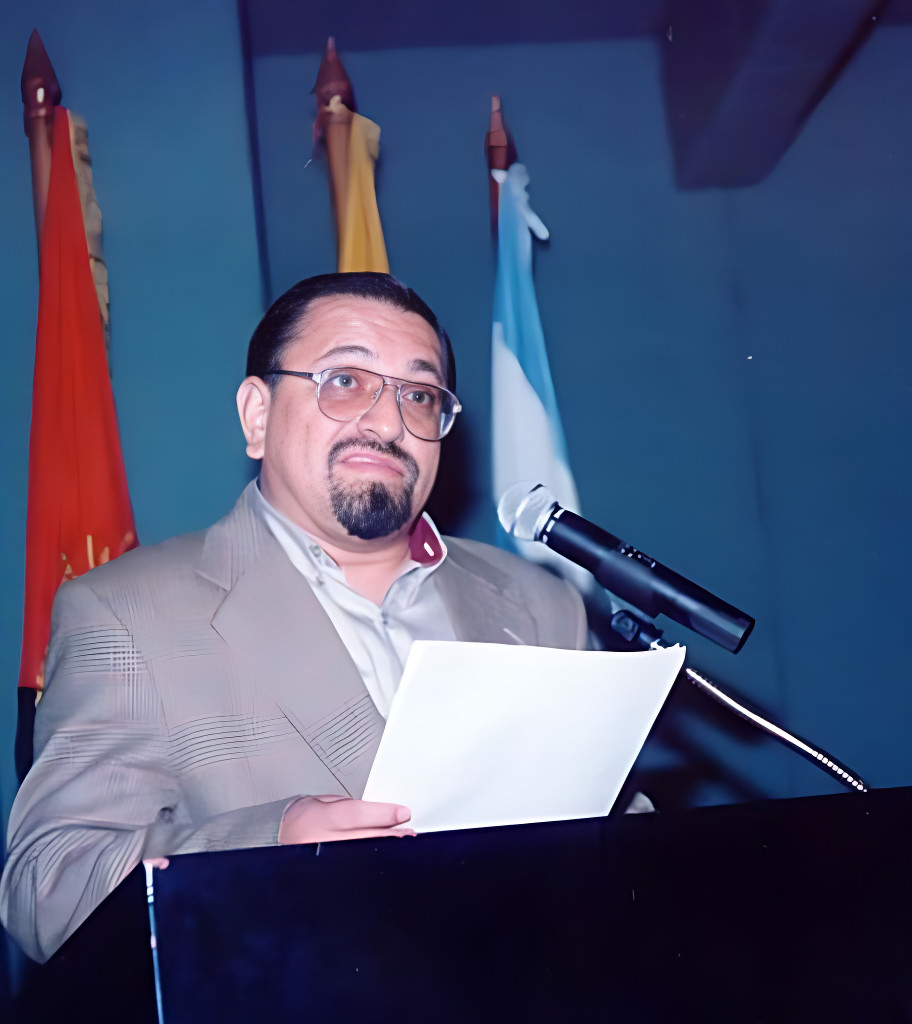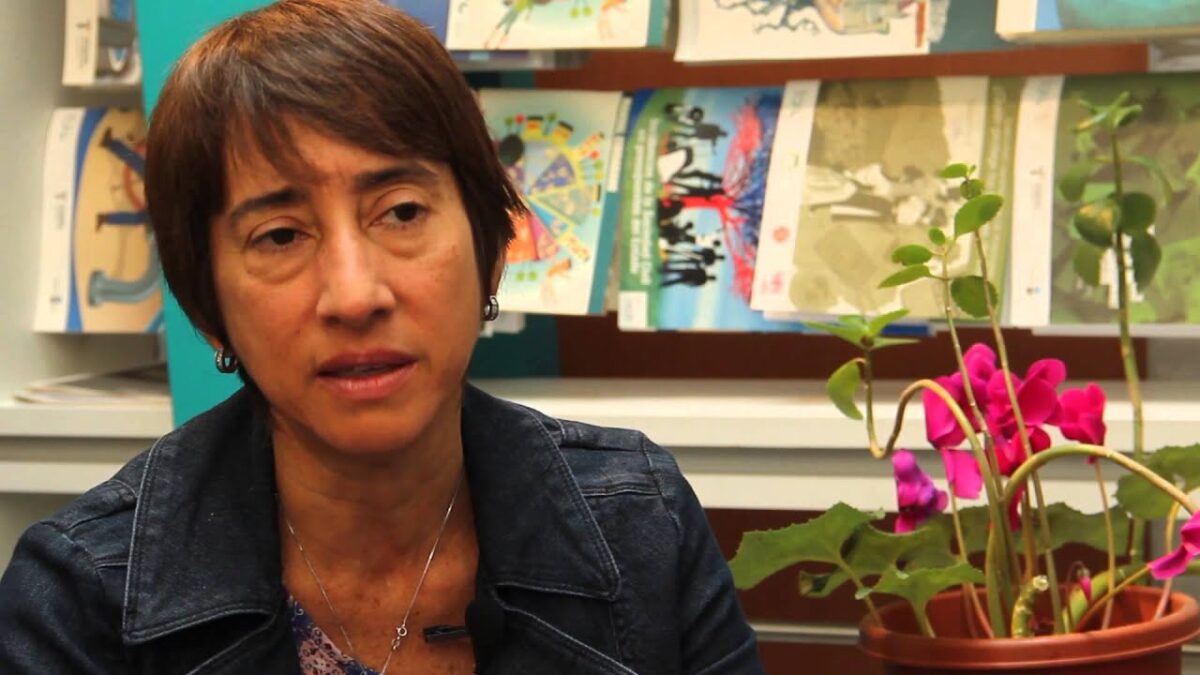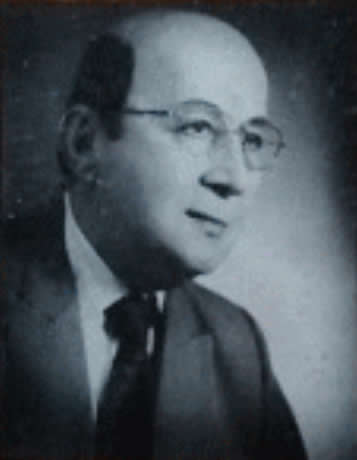Jorge Vanegas Muñoz (Guayaquil, September 6, 1923 – ibidem, April 6, 2003) the distinguished Ecuadorian poet, novelist, and journalist, left an enduring literary legacy that transcends borders. His notable works, including “Los sangrientos estambres,” “Esqueleto en abril,” and “Los escarabajos de un Virey,” stand as testaments to his poetic prowess and his commitment to the art of verse. In 1975, he received the prestigious National Poetry Contest Ismael Pérez Pazmiño award from the esteemed Guayaquil newspaper “El Universo.” Beyond his literary contributions, Jorge’s advocacy for peace, as seen through his participation in the Committee of Ecuadorian Writers for Peace and representation at the World Congress in Stockholm, reflects his dedication to using poetry as a force for harmony in a world marked by division. His life’s work continues to inspire and captivate readers, solidifying his place in Ecuador’s literary pantheon and beyond.
Continue reading “Jorge Vanegas Muñoz”Category: Writers from Guayaquil
Esperanza Matheus y Yerovi
Esperanza Matheus y Yerovi (Guayaquil, March 2, 1917 – December 1, 2006) was a distinguished Ecuadorian linguist, academic, writer, and cultural advocate. Among her notable works were “Mito y Mística del Siete,” “Ecuatorianismos de Costa y Sierra,” and “César Andrade y Cordero: Vida y Obra.” Her commitment to advancing culture was recognized with significant honors, including her election as a member of the Ecuadorian Academy of Language in 1980, where she delivered an impactful speech titled “La Participación de la Mujer Ecuatoriana en la Creación de la Cultura del País” (The Participation of Ecuadorian Women in the Creation of the Country’s Culture). Additionally, she received the Lazo de Dama de la Orden del Mérito Civil from Francisco Franco and the Lazo de Dama de la Orden de Isabel la Católica, presented by Juan Carlos I of Spain. Esperanza Matheus y Yerovi’s contributions to Ecuador’s cultural and literary landscape remain an enduring testament to her legacy.
Continue reading “Esperanza Matheus y Yerovi”Josefina Egas Montalvo
Josefina Egas Montalvo (Guayaquil, 1920 – February 2, 2014) was an Ecuadorian poet and a writer. She was known for her contributions to poetry and literature, as well as her dedication to education. Among her notable works are “Poetas Periodistas Guayaquileños” (2007), a comprehensive exploration of the biographies of Guayaquil’s literary figures, and her inclusion in “La Voz de Eros: Dos Siglos de Poesía Erótica de Mujeres Ecuatorianas” (2006), highlighting her poetry alongside other renowned female authors. Her dedication to literature and education earned her several awards and recognitions, including honors from the Casa de la Cultura Ecuatoriana and the Círculo de Periodistas del Guayas. In 2011, she received a prestigious award for her exceptional career as a teacher and poet, cementing her legacy in Ecuadorian literature.
Continue reading “Josefina Egas Montalvo”Catalina de Jesús Herrera
Catalina de Jesús María Herrera Campusano, known as Sor Catalina de Jesús Herrera (Guayaquil, August 22, 1717 – September 29, 1795) was a revered Ecuadorian religious figure and a talented writer. She demonstrated an early affinity for learning, thanks to her mother’s guidance in reading, writing, and religious education. Catalina embarked on a profound spiritual journey that led her to the Monastery of Santa Catalina de Siena in Quito. There, she adopted the religious name “Catalina Luisa de Jesús, María y José” and dedicated her life to faith and contemplation. Her contributions extend beyond her religious devotion, as she left a lasting literary legacy through her autobiography, “Secretos entre el alma y Dios,” which was completed in 1760 and remains a source of inspiration for readers interested in her spiritual insights and reflections. Catalina de Jesús Herrera’s life and writings continue to be celebrated for their profound wisdom and devoutness.
Continue reading “Catalina de Jesús Herrera”Ernesto Torres Terán
Ernesto Torres Terán (Guayaquil, 1956) is an Ecuadorian medical doctor and prolific writer. He began his literary journey with the publication of the short story collection “Del puerto secreto” (1982), followed by “Y sin embargo se mueve” (1983) and “Territorio de fantasmas” (2006). His novels include notable works like “Asedios profanos,” for which he won the Onetti-Rulfo Prize in 1996, “Mínima gloria” (2012), and “Diecisiete ballenas en una pecera” (2014), earning him various awards. Recently, he won the Miguel Riofrío Prize for his latest novel “Tu próxima movida” (2022), further adding to his acclaim as a prominent Ecuadorian writer.
Continue reading “Ernesto Torres Terán”Ángela Arboleda
Ángela Arboleda Jiménez (Guayaquil, 1969) is a journalist, publicist, dancer, oral storyteller, writer, cultural manager, and teacher. Her literary career began under the mentorship of Miguel Donoso Pareja, and she has published works such as “Cuentos y tradiciones orales del Ecuador” (2006), “Nadie sabe qué hará mañana” (2008), “Tuétano” (2021), and “Esa mujer es la muerte” (2022). A dedicated preserver of oral traditions, Arboleda has toured festivals for over 20 years, and her significant contributions to cultural management are marked by her leadership in various storytelling events. She has been recognized with nominations for Woman of the Year in Art and Culture. She holds advanced degrees in Cultural Management and teaches at the University of the Arts (UArtes) in Guayaquil.
Continue reading “Ángela Arboleda”Roxana Landivar
Roxana Landívar (Guayaquil, 1997) is an Ecuadorian poet. Landívar’s poignant poems, characterized by their evocative imagery and exploration of human themes, have garnered wide acclaim. They have been published not only in her collections “Ciudades cemento” (2019) and “Fractura primaria” (2020) but also in distinguished magazines and anthologies across Ecuador, Peru, Mexico, Argentina, Brazil, and the United States. With her participation in various festivals and international book fairs, Landívar continues to enrich the Latin American literary sphere, reaching out to a broader audience, and shaping conversations around contemporary poetry.
Continue reading “Roxana Landivar”Alfredo Baquerizo Moreno
Alfredo Baquerizo Moreno (Guayaquil, September 28, 1859 – New York City, March 20, 1951) was a prominent Ecuadorian politician, author, and intellectual figure of the early 20th century. Baquerizo Moreno excelled in various fields throughout his life. He displayed his artistic talents through his poetry, influenced by Spanish author Gustavo Adolfo Bécquer, and his novels, which showcased his imaginative storytelling. Baquerizo Moreno’s career in politics was equally impressive, serving as the President of Ecuador from 1916 to 1920. During his presidency, he implemented progressive reforms and prioritized social justice, advocating for the abolition of debt imprisonment and improving labor conditions. Baquerizo Moreno’s lasting contributions to literature and his dedication to public service have secured his place in Ecuadorian history as a multifaceted and influential figure.
Continue reading “Alfredo Baquerizo Moreno”Carlos Carbo Viteri
Carlos Carbo Viteri (April 13, 1865 – August 13, 1922) was a distinguished Ecuadorian poet, translator, congressman, and diplomat, renowned for his substantial contributions to his country’s literature and politics. Influenced by classical Greek and Latin literature, his romantic poetry captured the nuances of everyday life, earning him recognition and acclaim. His poignant poem “A Guayaquil,” composed for the centennial birth anniversary of Vicente Rocafuerte, notably secured him the second prize in a 1883 poetry contest. He also translated foreign works, such as Alphonse de Lamartine’s “El Poeta Moribundo,” into Spanish, making them accessible to a wider audience. In his political career, Carbo Viteri served actively as a congressman while passionately advocating for conservative principles. His service extended to several important positions including the Secretary of the Guayas Governorate and the Municipal Syndic of Guayaquil. Additionally, he represented Ecuador internationally as its Chargé d’Affaires in Chile. His impactful work in both the literary and political spheres has left an enduring imprint on Ecuador’s cultural and political history.
Continue reading “Carlos Carbo Viteri”Sara Arana
Sara Arana, known as “La abogada del rap,” is a 25-year-old rapper, poet, and activist hailing from Guayaquil, Ecuador. Despite facing numerous challenges, including addiction and the tragic loss of her mother, she found solace and strength in the arts. Through her powerful and heartfelt music, poetry, and culinary talents, she has become a voice for empowerment and social change. Arana’s debut poetry book, “HipHop es vida” (2021), serves as a testament to her resilience and a celebration of the genre that has shaped her life. Arana’s experiences and personal journey showcase the transformative power of art and serve as an inspiration to others.
Continue reading “Sara Arana”Carlos Calderón Chico
Carlos Calderón Chico (Guayaquil, June 14, 1953 – January 4, 2013) was an influential Ecuadorian historian, writer, journalist, cultural manager, and bibliophile. He pursued a degree in Literature and Spanish from the University of Guayaquil. He emerged as an acclaimed educator, teaching History and Ecuadorian Literature in various Guayaquil schools. Calderón Chico’s contributions extended beyond academia, as he became a crucial figure in Ecuador’s cultural and literary scene. He participated in the management of cultural supplements and magazines, facilitated cultural debates, and engaged with prominent writers, painters, and politicians. As a testament to his dedication, he received the First Class Cultural Merit Decoration from the National Government and was declared Journalist of the Year by the Guayaquil Association of Journalists. His career also spanned overseeing the Ecuadorian Society of Writers, coordinating for Revista Diners, and conducting important research for the Historical Archive of Guayas. Calderón Chico’s writing portfolio boasts numerous publications, interviews, and critical analyses, which have played an integral role in shaping Ecuadorian literature and cultural history.
Continue reading “Carlos Calderón Chico”Jorge Coronel Pincay
Jorge Coronel Pincay (Guayaquil, April 23, 1920 – February 19, 1992) was an Ecuadorian lawyer, university professor, and noted poet renowned for his ability to convey profound emotions through short and impactful verses. He was honored with the title of “Romancero Guayaquileño” by the Municipality of Guayaquil. His notable published works include “Junquillo” (1935), “Romances a sol y lágrimas” (1940), “Dos Recitales” (1952), “Promesa de don Francisco” (1972), “Más allá de las palabras” (1977), and “Artefactos” (1979). His poems evoke intense feelings, showcasing his ability to capture complex emotions with brevity and evocativeness. The law firm he founded in 1952, today named Pincay Morla & Cia, is one of the oldest in Guayaquil and is still run by his descendants.
Continue reading “Jorge Coronel Pincay”Carolina Portaluppi
Carolina Portaluppi Castro (Guayaquil, 1963) is an Ecuadorian poet, economist, and educator. Her literary journey began with the publication of her first poetry collection, “Excluidos los signos,” in 1999, which delves into a range of human emotions and experiences. In 2009, she unveiled her second book, “Dice que no sabe,” which draws inspiration from the renowned Argentine poet Alejandra Pizarnik and showcases Portaluppi Castro’s introspective writing style. Carolina Portaluppi Castro holds the position of Coordinator of the Master’s Degree Program in Public Administration at Casa Grande University where she is also a professor of Public Policies. Additionally, she serves as a Professor of Public Policies for Disaster Risk Reduction at the Universidad Andina Simón Bolívar. Her poems have been published in various anthologies, including, “Indignados tus hijos del yugo,” “La voz del Eros,” and “Poetas de la Mitad del Mundo.”
Continue reading “Carolina Portaluppi”Gonzalo Espinel Cedeño
Gonzalo Espinel Cedeño (Guayaquil, September 1, 1937 – Unknown) is an esteemed Ecuadorian poet known for his mastery of the sonnet form. Raised in a literary environment alongside his sister, Ileana Espinel Cedeño, he was influenced by the creative circle of poets from the Club 7. Despite early hardships, including the loss of his mother, Gonzalo developed a love for poetry and published several significant collections, including Estatura de la yerba (1968), Arenas al Viento (1968), Láminas del agua (1978), and Vertiente honda (1983). His works, celebrated for their lyricism, introspection, and emotional depth, earned him numerous accolades, including the First Prize in the Ismael Pérez Pazmiño Contest in 1968.
Continue reading “Gonzalo Espinel Cedeño”León Hi-Fong
León Hi-Fong (February 20, 1941 – Unknown) was an Ecuadorian writer and poet born in Guayaquil. In 1967, he co-founded a cultural group called CIMA along with linguist Carlos Rojas González, painters Juan Villafuerte and José Carreño, and narrators Alvarado, Salas, and Agustín Vulgarín. This group hosted a weekly hour-long radio program featuring Eduardo Salas Rodas and Hipólito Alvarado. León Hi-Fong also established the Buhardilla theatre group and co-founded the magazine “El pez que fuma” (The Smoking Fish) with poet Agustín Vulgarín. In 1975, he published a book of poems titled “El funeral de los pájaros” (The Funeral of the Birds) through the Casa de la Cultura Ecuatoriana. During the same year, he was reported to be living in the United States. In 1986, he published “Maleficio,” a collection of short stories. Later, in 1996, he published his poetry collection “Vuelo del pez que fuma: poemas.”
Continue reading “León Hi-Fong”